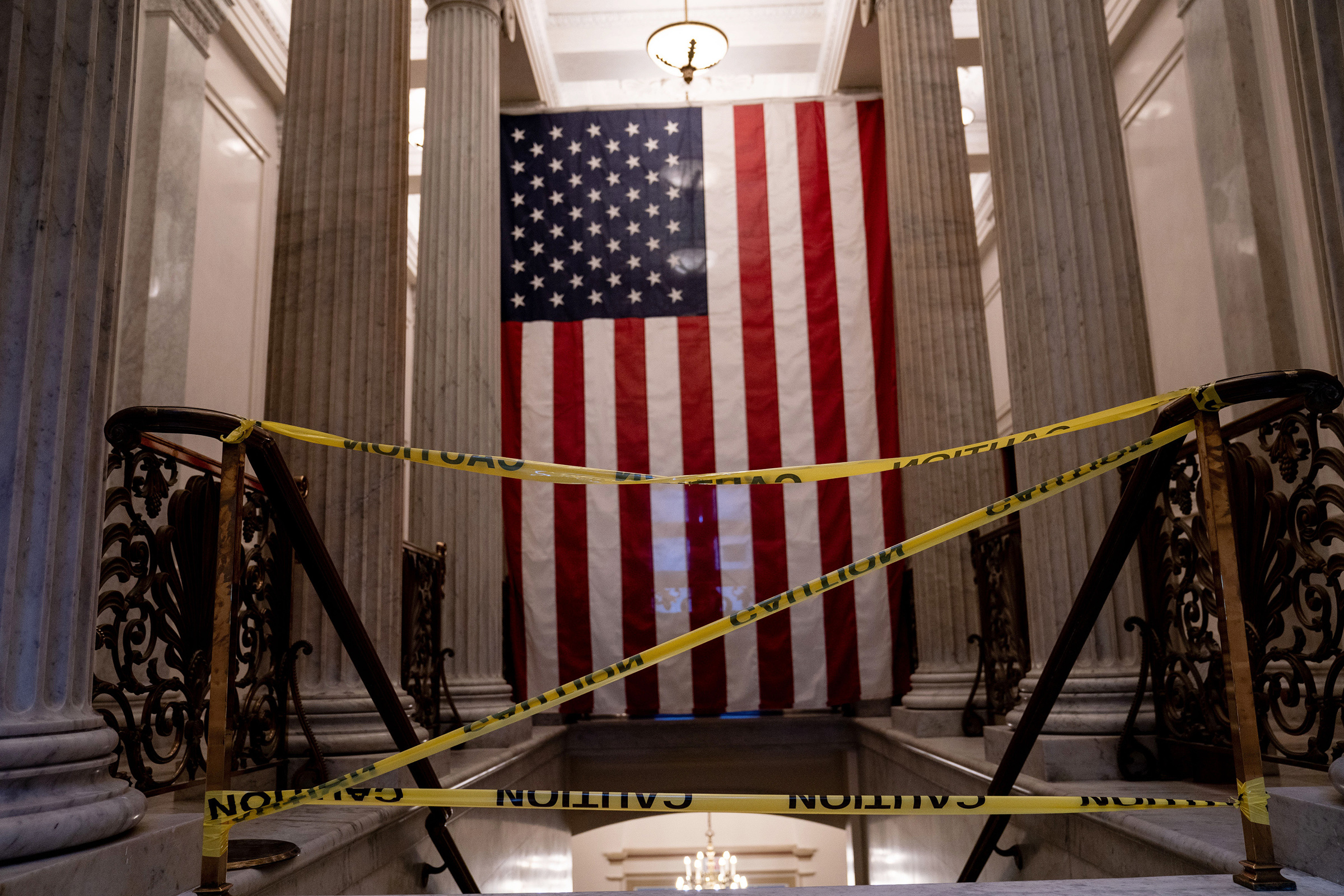
Like our pandemic response, the U.S. Capitol riot is the latest cataclysm to be blamed on a failure of imagination. Who could imagine a virus that crashes the entire global operating system, or an attack that narrowly fails to decapitate the U.S. government?
And the obvious answer? Anyone who was paying attention.
Just as epidemiologists long warned of a pandemic, the insurrectionists helpfully advertised their violent intentions all over social media. The phrase storm the Capitol, unleashing countless QAnon furies, appeared 100,000 times in the month before the attack, according to Zignal Labs. The President clashed his cymbals and stoked the lie; party leaders largely ignored or pampered him. The day before the attack, an FBI office shared the warnings from online: “Be ready to fight. Congress needs to hear glass breaking, doors being kicked in … Get violent. Stop calling this a march, or rally, or a protest. Go there ready for war.”
Which means that it should have required no imagination to foresee an uprising that was planned, promised and promoted in plain sight. So how is it that so many people were once again caught by surprise, watching the American flag brandished as a bayonet, the portraits of American revolutionaries looking out over their wannabe heirs whose “patriotism” was poisoned by the cynical lies of their leaders?
For one thing, surprise can be a form of privilege. The battle cries of Jan. 6 rhymed with American insurrections past: the toxic white supremacy, the bloodlust of mobs, the defense of indefensible means to achieve unworthy ends. “Being a Black woman and feeling unsafe is not new,” observed Representative Ayanna Pressley of Massachusetts. “The experiences of Wednesday were harrowing and unfortunately very familiar in the deepest and most ancestral way.” To be shocked by political violence expressed with impunity is a privilege of those of us who’ve never had our rights violated, our safety dismissed or our vote suppressed.
Maybe Jan. 6 was more a failure of moral imagination, of grasping what people are capable of. And that failure reflects the collapse of moral leadership that we have seen in the past year not just in our politics but in what should have been the shared national purpose of fighting a pandemic that threatened us all. The President in particular showed no impulse to summon the nation to a higher calling by persuading enough people that something as simple as wearing a mask was an act of decency and patriotism.
In a year defined by loss and isolation, generosity is both medicinal and contagious. Caring for one another can reduce stress, decrease depression, restore a sense of self-worth and improve physical health. But too many leaders used the pandemic to divide and conquer rather than unite and inspire. It’s no coincidence that the twin viral threats of COVID-19 and QAnon flourished together. Detached from normal bonds of community, sick of quarantine, stressed by trying to keep their jobs or teach their kids, it’s even easier for people to tumble into online cesspools of conspiracy, enlisting in what they were promised was a global battle against evil.
Then after a hard autumn election, rather than working through the normal disappointment of defeat, millions of people heard from leaders that their vote had been stolen, their voice silenced. This time, the President and his enablers did rally their most devoted followers to a higher purpose–defending his right to remain in power by any means, at any cost.
In the wake of the riots, as lawmakers wrestle with the limits of accountability, the moral leadership vacuum has been cautiously filled by private corporations withdrawing their support from insurrectionists, technology companies belatedly acknowledging their complicity in contaminating our information streams and engineering radicalization, and rebel Republicans affirming their public commitment to basic truth and facts. But until we find our way back to a shared reality, lack of moral imagination will remain a national-security threat. Lack of moral leadership at a moment like this imperils democracy itself. In our schools and sanctuaries and clubs and communities, in our dealings with alienated friends and family, the vital work of replacing toxic fantasies with hard realities falls to each of us.
Gibbs, a former TIME editor-in-chief, is director of Harvard’s Shorenstein Center
More Must-Reads From TIME
- The 100 Most Influential People of 2024
- The Revolution of Yulia Navalnaya
- 6 Compliments That Land Every Time
- What's the Deal With the Bitcoin Halving?
- If You're Dating Right Now , You're Brave: Column
- The AI That Could Heal a Divided Internet
- Fallout Is a Brilliant Model for the Future of Video Game Adaptations
- Want Weekly Recs on What to Watch, Read, and More? Sign Up for Worth Your Time
Contact us at letters@time.com